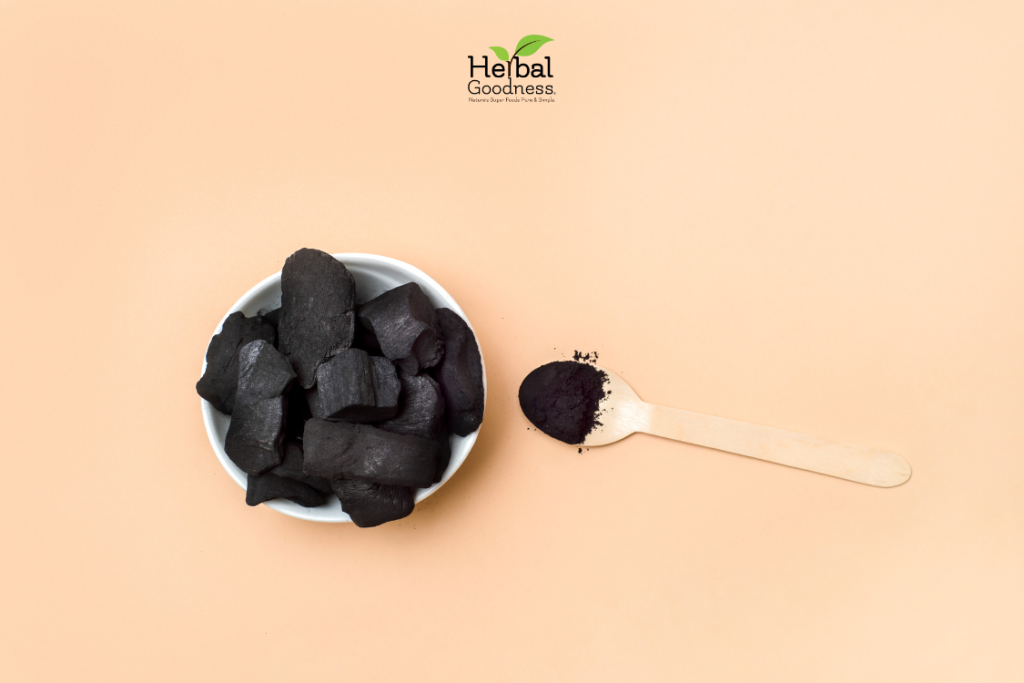Charcoal, particularly in its activated state, has been a buzzword in health and wellness circles for its purported ability to purify and detoxify. Research proves that it can help bind toxins and chemicals, potentially removing them from our bodies. This fascinating form of carbon has a long history and a variety of uses that may surprise you.

What is Charcoal?
It is produced by burning carbon-rich materials, such as wood, in a low-oxygen environment. This process preserves the carbon structure, creating a substance with high porosity. For charcoal to become activated goes through an additional process where it’s treated with oxygen. This increases its surface area making it more effective at trapping substances.
Its Purifying Qualities
Studies have shown that the porous nature of activated charcoal can help alleviate gas and bloating. It supports kidney function by filtering out undigested toxins and drugs, and even boost skin health by removing impurities. It’s commonly found in water filters, emergency toxin removal, and skincare products.
Its Role in Medicine
Medical professionals use activated charcoal for emergency treatment of certain kinds of poisoning. It absorbs toxins effectively, making it a crucial tool in overdose cases to prevent the poison from entering the bloodstream from the stomach.
Charcoal in Daily Life
Beyond its medical applications, it can be found in a variety of everyday products. Toothpaste containing an activated charcoal claim to whiten teeth by removing surface stains. Skincare products with charcoal promise to clear up acne by drawing dirt and oil from pores. Even in the food industry, it is making an appearance in items like detoxifying juices and novelty ice creams.

Environmental Impact
Charcoal also plays a role in environmental protection. Its filtering ability purifies air and water by removing contaminants and odors. This makes it a key component in sustainable living practices, as it supports cleaner environments without the use of harsh chemicals.
What are some common misconceptions about charcoal?
Several common misconceptions about charcoal often lead to confusion. Here are a few, along with some clarifications:
- It is only for the poor: Charcoal is used across a wide range of income levels. It is not just an energy source for the poor.
- Its use is decreasing: Contrary to this belief, it remains a prevalent source of energy across the world.
- Its production causes deforestation: While unsustainable charcoal production can contribute to deforestation, it does not necessarily have this impact when produced sustainably.
- Its sector is economically irrelevant: In fact, the charcoal industry plays a significant role in many economies, especially in rural areas.
- Improved charcoal cookstoves reduce deforestation and greenhouse gas emissions: This is not always the case. The impact of cookstoves on deforestation and emissions depends on various factors.
It’s important to approach charcoal with a nuanced understanding, recognizing both its benefits and the need for sustainable production and usage practices.
Conclusion
Charcoal, especially in its activated form, is a versatile and natural solution that supports a wide range of health and environmental applications. While it’s not a cure-all, it can help boost our well-being and purify our surroundings, making it a valuable addition to our daily lives.
Remember, while it can support health and wellness, it’s important to use it responsibly and under the guidance of a professional, especially in medical scenarios. Always consult with a healthcare provider before starting any new health regimen.
Charcoal continues to intrigue and benefit us, proving that sometimes, the simplest substances can have the most profound effects.


